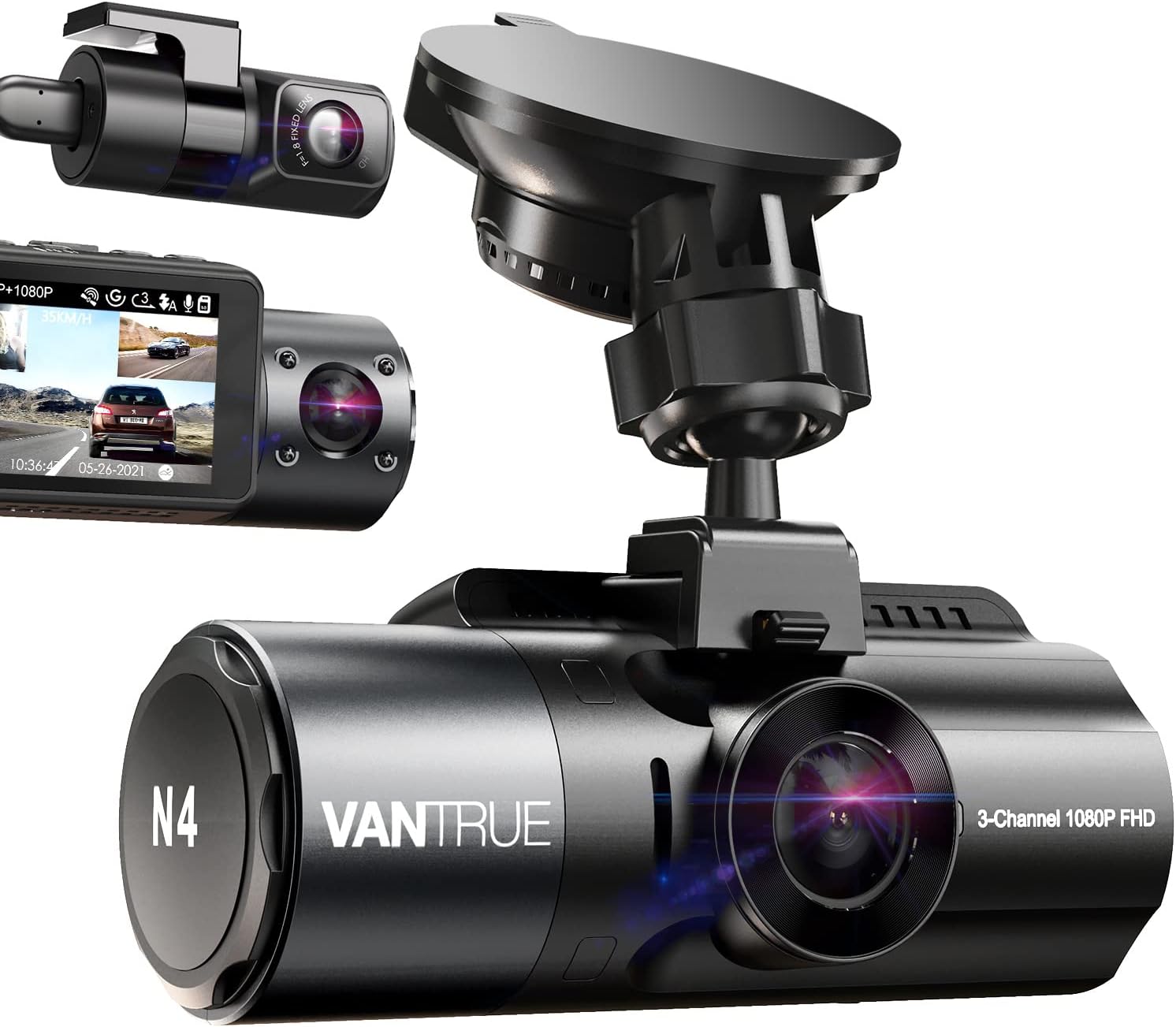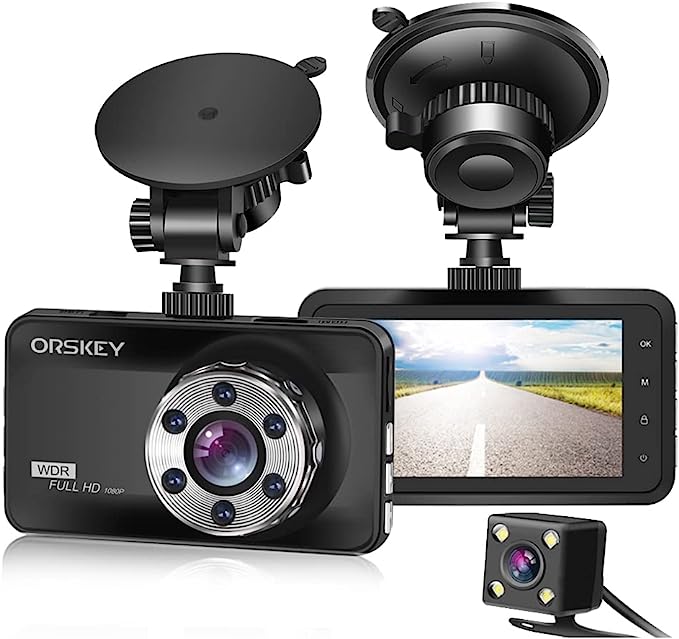Products are selected by our editors, we may earn commission from links on this page.
Introduction to Dash Cameras
Importance of Having a Dash Camera
Having a dash camera in your car can provide numerous benefits, including increased safety and security, evidence in case of accidents or incidents, and potential savings on car insurance premiums. Dash cameras can also help protect against fraud and false claims, as well as provide peace of mind for drivers. With the rise of distracted driving and road rage incidents, having a dash camera can be a valuable tool for protecting yourself and your vehicle.
Types of Dash Cameras
There are several types of dash cameras available on the market, including front-facing, rear-facing, and dual-facing cameras. Front-facing cameras record what is happening in front of the vehicle, while rear-facing cameras capture what is happening behind the vehicle. Dual-facing cameras record both the front and rear of the vehicle, providing comprehensive coverage. Some dash cameras also come equipped with additional features such as GPS tracking, night vision, and parking mode. It’s important to consider your specific needs and budget when choosing a dash camera.
Evaluating Video Quality of Dash Car Cameras in 2021

Resolution
When choosing a dash camera, one of the key factors to consider is the camera’s resolution. A higher resolution camera will produce clearer and more detailed video footage, making it easier to identify important details like license plates or street signs. However, higher resolution cameras can also be more expensive. It’s important to balance your budget with your need for high-quality footage. For example, the Vantrue N4 3 Channel Dash Cam offers 4K+1080P front and rear dual recording mode, providing incredibly clear footage of your entire vehicle.
Frames Per Second (FPS)
FPS is another important factor to consider when choosing a dash camera. FPS refers to the number of frames the camera records per second, with higher FPS resulting in smoother and more detailed video footage. A higher FPS is especially important for capturing fast-moving objects like other vehicles on the road. While 30 FPS is generally considered the minimum for dash cameras, 60 FPS is recommended for the best quality footage. The ORSKEY Dash Cam, for example, offers 1080P full HD resolution at 30 FPS, providing clear and smooth footage of your driving experience.
Night Vision
Infrared Illumination
When choosing a dash camera, it is important to consider the infrared illumination capabilities. This feature allows the camera to capture clear footage in low light conditions or at night. Look for a dash cam with multiple infrared LEDs and WDR technology that can reduce glare and reflections. The ORSKEY Dash Cam and the Vantrue S1 Dual Dash Cam both have superior night vision capabilities thanks to their infrared LED fill lights.
Low Light Performance
In addition to infrared illumination, the low light performance of a dash camera is also crucial. A camera with a wide aperture, high ISO sensitivity, and advanced sensors can capture clear footage even in the darkest conditions. The Vantrue S1 Dual Dash Cam is a great option for low light performance, as it has an F1.47 aperture and Sony Starvis sensor.
Maximizing Storage Capacity with Dash Car Cameras: A Comprehensive Guide

Internal Memory
When considering the internal memory of a dash car camera, it’s important to think about the amount of storage space available and how long the camera can record for before looping over old footage. Some cameras may offer up to 32GB of internal memory, which can provide several hours of continuous recording time. However, keep in mind that if the camera is set to record at a high resolution, this can quickly fill up the internal memory. It’s also important to consider the quality of the internal memory and ensure that it is durable and can withstand harsh driving conditions.
External Memory Card
External memory cards can be a great option for those who want more storage space or the ability to easily transfer footage from the camera to another device. When choosing an external memory card, it’s important to consider the capacity and speed of the card. Look for cards with at least 32GB of storage space and a high writing speed to ensure that the camera can record at its highest resolution without interruption. It’s also important to choose a reputable brand and ensure that the card is compatible with the dash car camera.
Size and Design
Compactness
When it comes to choosing a dash car camera, compactness is a crucial factor to consider. A compact dash camera takes up less space on your windshield and is less noticeable to potential thieves. Moreover, it won’t obstruct your view while driving. A compact dash cam is also more discreet, which means it is less likely to attract the attention of vandals or burglars. Additionally, a small dash camera can be easily removed and stored in your glove compartment when you park your car in public places.
Aesthetics
While aesthetics may not be the most important factor to consider when purchasing a dash car camera, it can still play a role in your decision-making process. Aesthetics refer to the design and appearance of the camera. You may want to choose a dash camera that matches the interior of your car or one that is sleek and modern in design. Aesthetics can also include the color of the camera, the type of mounting bracket it comes with, and the size of the screen. Ultimately, the aesthetic appeal of a dash camera may not affect its functionality, but it can enhance the overall look and feel of your car’s interior.
Additional Features to Look for in a Dash Car Camera

GPS Tracking
One of the key factors to consider when choosing a dash car camera is whether or not it features GPS tracking. A dash camera with GPS tracking provides a number of benefits, including the ability to record your vehicle’s location, speed, and direction of travel. This information can be incredibly helpful in the event of an accident, as it can provide valuable evidence to support your insurance claim or legal case.
In addition to providing valuable information in the event of an accident, a dash car camera with GPS tracking can also help you keep tabs on your vehicle’s whereabouts. This can be particularly helpful if you have teenage drivers or other individuals who use your vehicle and you want to ensure they are driving responsibly.
Wi-Fi Connectivity
Another important factor to consider when choosing a dash car camera is whether or not it features Wi-Fi connectivity. A dash camera with Wi-Fi connectivity allows you to easily transfer footage from the camera to your smartphone or computer, making it easy to view and share the footage.
Wi-Fi connectivity also allows you to adjust the camera settings and access additional features, such as live streaming and remote monitoring. This can be particularly helpful if you want to keep an eye on your vehicle while it is parked or monitor your teenage driver’s behavior behind the wheel.
Overall, a dash car camera with Wi-Fi connectivity can be incredibly convenient and useful, allowing you to easily access and share footage while also providing additional features and functionality.




